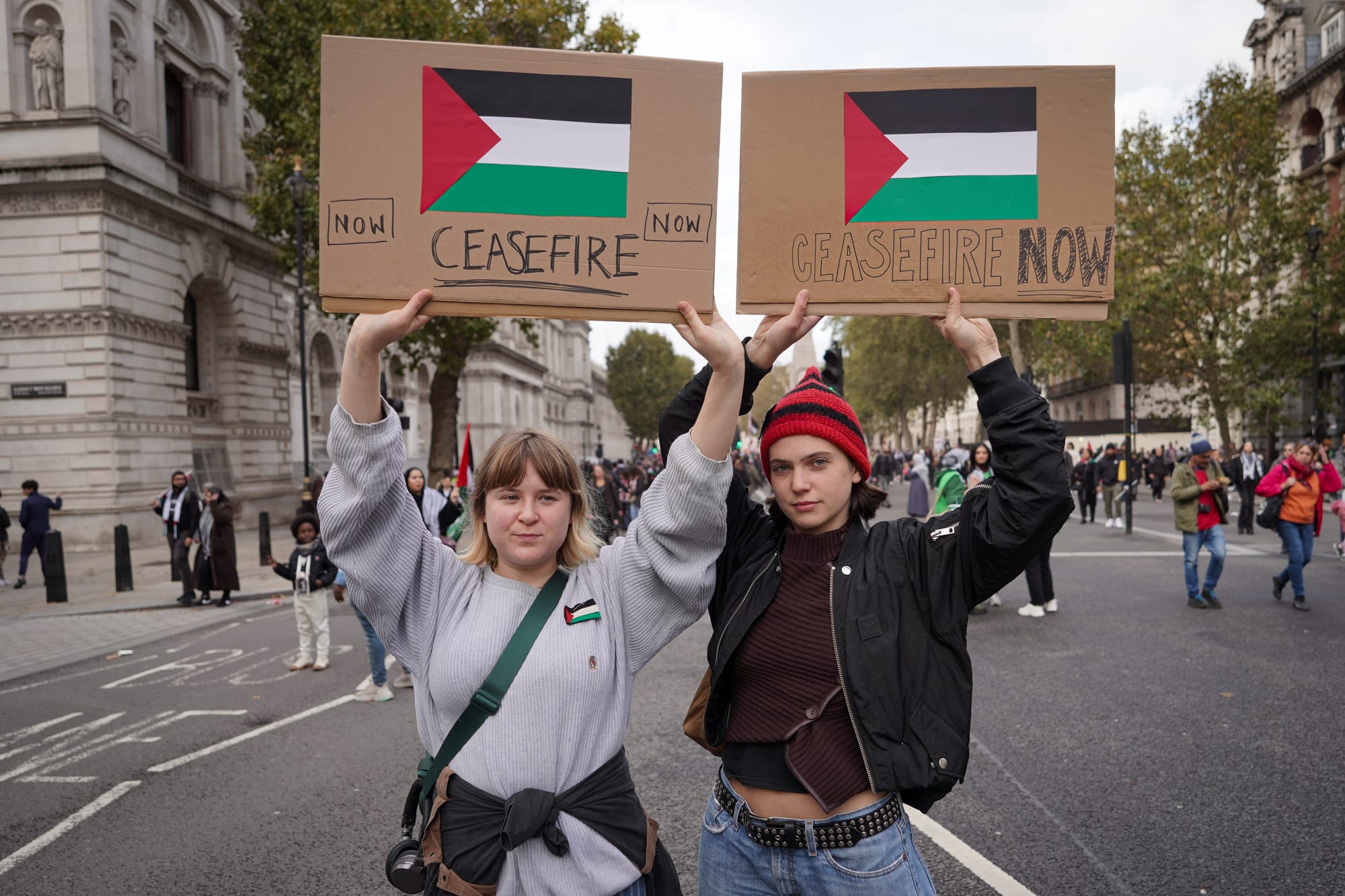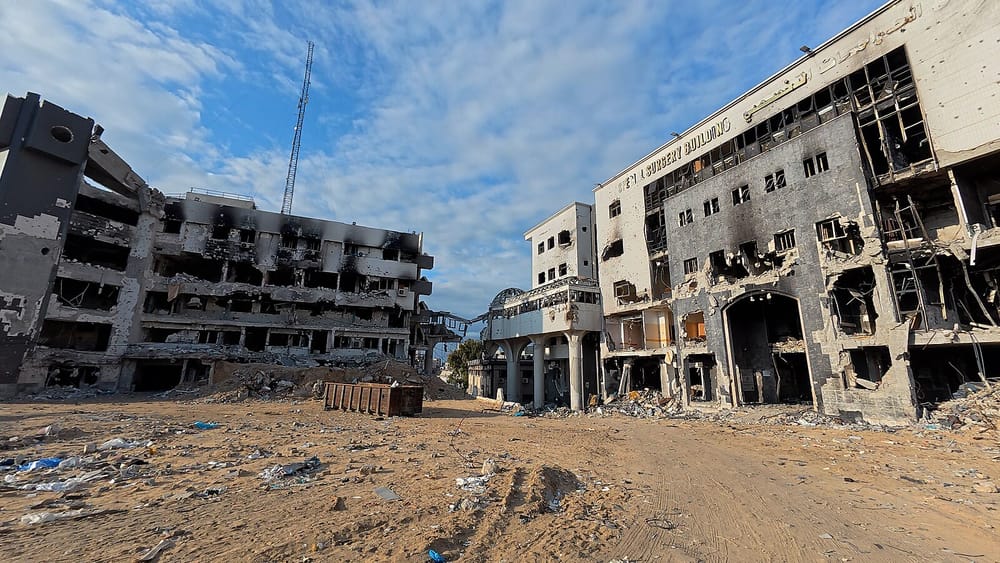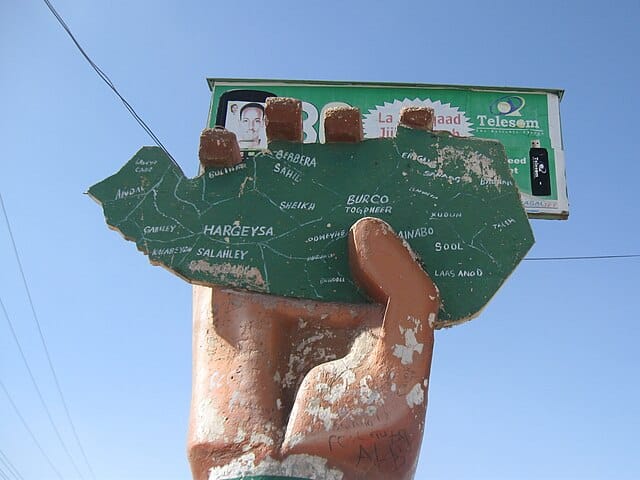You can't cease the fire while the earth is being scorched
"Ceasefire is but one part of a larger commitment to Palestinian liberation."

After bombing Lebanon for thirteen months and killing over 4,000 people, Israel is finally allowing Lebanese refugees to return to their homes. On Wednesday of last week, Israel agreed to a ceasefire with Hezbollah, promising to withdraw its forces from the country within 60 days. Historically, Israel has ignored numerous promising ceasefire agreements, and, so far, this deal has proven no exception. Since the announcement last week, Israel has violated the conditions at least one hundred times, killing 11 people, and prompting Hezbollah to strike Israeli military targets in retaliation.
Over this same period, we can somehow still speak of the situation in Gaza as worsening. After 426 days of genocide, Israel continues to rain terror upon the people of Gaza, continuing to expand the already horrifying array of means of destruction at its disposal. Yesterday, Palestinian journalist Hani Mahmoud stated that “we can’t keep up” with the number of attacks on Kamal Adwan Hospital, as quadcopters and drones deliberately targeted medical staff and patients. In the surrounding city of Beit Lahiya, corpses were found lining the streets as Israel attempts to exterminate all Palestinians who remain. Israeli forces have continued to bomb the so-called “safe zone” of al-Mawasi refugee camp, burning people alive.
Mohammed El-Kurd tweeted in October of 2023, “A ceasefire is the immediate demand of the people in Gaza and the bare minimum.” This statement remains starkly and viciously true. There is nothing more important than stopping the genocide. And yet, when we see the fragile reality of the ceasefire deal in Lebanon, those of us who claim a position of solidarity must clarify that ceasefire is but one part of a larger commitment to Palestinian liberation.
Refining Demands
When Western politicians talk about a ceasefire, they almost exclusively adhere to a narrow set of conditions, elaborated by President Joe Biden on X as: “the hostages released and an end to the war without Hamas in power”. Treated in these terms, the Israeli military blockade and siege of Gaza are seen at best as side issues, as is the escalating state-sanctioned terror in the West Bank, to take just a few examples of the violent regime Israel has imposed over Palestinians with impunity.
The reality is that the maintenance of Zionist settler colonialism, as a whole, inherently contradicts any meaningful interpretation of the concept of a ceasefire because it necessitates the violent enforcement of Palestinian expulsion. To put it bluntly: how would Israel maintain its ethnic supremacy if Palestinians could return to their homes freely, without being imprisoned, abused or shot? When it comes to the demands of the international solidarity movement, it is far past time to stop pandering to anything less than an end to Zionism as a satisfactory answer to Israel’s crimes.
Over the past year, many global solidarity organisations have evolved their messaging to reflect this reality. For example, in October 2023, the UK’s Palestine Solidarity Campaign began organising its weekly national marches for Palestine, almost immediately messaging around “Ceasefire Now!” However, the most recent national march, held on 30 November 2024, witnessed a marked change in tone, instead calling for the UK Government to “End the Genocide” and “Stop Arming Israel”.
This reflects a larger shift throughout the solidarity landscape. Although some international organisations (most notably, Oxfam and The International Committee of the Red Cross) continue to maintain a nondescript version of ceasefire as their baseline political demand, many others have escalated their demands to encompass upholding the ICC’s arrest warrants for Netanyahu and Gallant, ending the Israeli occupation and the siege of Gaza, and suspending all arms transfers to Israel.
A similar repositioning has occurred within the largest and most influential Jewish anti-Zionist campaign group, Jewish Voice for Peace (JVP). On 17 October 2023, JVP launched its first online campaign to oppose the genocide, urging President Biden to call for a ceasefire and to stop sending the Israeli government weapons. In the following months, JVP’s public demands have veered further left, launching a divestment campaign against Israeli state bonds. This redirection of energies reflects an understanding within JVP that the role of Jewish solidarity extends beyond ceasefire and through to the end of Zionism.
No Terms or Conditions
The groups who have not clarified their stance on the conditions for ceasefire often pair their vagueness with another demand: the return of the hostages. Specifically, Jewish solidarity groups like the UK’s Na’amod or the US’s If Not Now, rhetorically tie their ceasefire advocacy to the release of the Israeli hostages. This language is not only unhelpful but actively enforces the Israeli settler-colonial paradigm, to the detriment of the Palestinian cause. Importantly, Netanyahu has rejected every single attempt for a hostage deal, leading to doubt even within Israel that this genocide has anything to do with freeing the hostages. Therefore, when the demand for immediate ceasefire is linked to a hostage deal, we cede rhetorical power to Zionists, and bolster these bad-faith negotiations.
Placing a ceasefire and a hostage deal on equal footing implies that ending the genocide is a conditional ask. In this framing, one could justify the estimated hundred of thousands of Palestinians murdered by Israel by the fact that a hostage deal has not been reached. There is no justification for this genocide, and there must be no conditions upon its end. Representing a ceasefire in Gaza as in any way “negotiable” betrays both an underlying commitment to Israel’s continued legitimacy as a state actor and a disturbing devaluation of Palestinian life.
Furthermore, demanding a hostage deal in tandem with a ceasefire legitimises the destruction of Palestinian lives as a mere negotiating tactic, directly upholding Israel’s settler-colonial logic of extermination. For example, on Monday, Trump posted to his social media platform, Truth Social, clarifying the conditions for his ideal ceasefire: "If the hostages are not released prior to January 20, 2025, the date that I proudly assume office as President of the United States, there will be ALL HELL TO PAY in the Middle East, and for those in charge who perpetrated these atrocities against humanity." Clearly, Trump’s call for a ceasefire is not in response to the genocide unfolding in Gaza. Instead, Trump’s statement taunts even more death and destruction in Palestine, if Israel’s conditions are not met.
In the words of Palestinian journalist Tamam Mohsen, “the Gaza genocide is just an instrument in Israel’s larger colonial project”. Israel’s ultimate goal is to ethnically cleanse Palestine of Palestinians, and placing terms and conditions on a ceasefire plays right into the hands of this agenda. This is an outcome that a principled solidarity stance must reject.
#EndZionismNow
The call for an immediate ceasefire is a necessary part of any solidarity work - how could we not be pushing for an end to this incessant and abhorrent violence? But at its core, any and all work faithfully done in the name of solidarity with the Palestinian cause must also focus on crippling the Israeli apartheid state and dismantling Zionism.
It remains too early to tell how the ceasefire in Lebanon will pan out. But what is certain is that any success in halting Israel’s advance into southern Lebanon should not be taken as evidence that Israel is a credible negotiating partner when it comes to Gaza. There, Israel’s genocidal intent is clear, and no ceasefire agreement on its own will lead to the end of Israeli aggression. A true cessation of violence can only come through the unconditional freedom and liberation of the Palestinian people - and nothing less. ▼
Kendall Gardner is an editor at Vashti Media.
Author

Kendall Gardner is an editor at Vashti and a doctoral candidate in political theory at the University of Oxford.
Sign up for The Pickle and New, From Vashti.
Stay up to date with Vashti.



